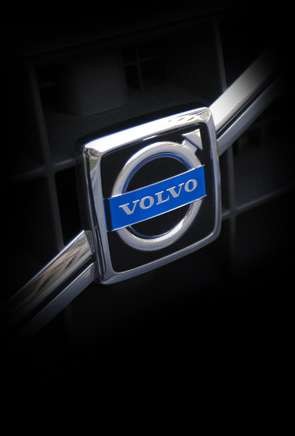
Catalytic converter with Lambda sond – Volvo first • Engines for renewable fuels
•PremAir® – ozone converter
•Environmentally certified operations
•Environmental Product Declarations • Volvo 3CC – concept car for sustainable mobility
Volvo Cars is now advancing its position in its commitment to sustainable mobility, investing considerably in environmental technology over the coming years. Among other things, a new hybrid technology centre is being opened in Göteborg, where the energy-efficient vehicles of tomorrow will be developed and engineered. The company already has a long tradition of environmental dedication: the three-way catalytic converter with Lambda sond, engines running on renewable fuels, clean factories and emission control technologies of world-leading class are examples of the company’s milestones in the environmental sphere.
The Lambda Sond – the greatest technical breakthrough
Already back in 1976, Volvo Cars was the first car manufacturer to introduce the three-way catalytic converter with Lambda sond – a breakthrough for emission control technology. More than 90 percent of the harmful emissions could be eliminated with the new technology, and today almost all petrol-powered cars are fitted as standard with a three-way catalytic converter with Lambda sond.
FlexiFuel and Bi-Fuel engines
Back in 1995, Volvo was the first car maker in the premium segment to start producing Bi-Fuel models that can run on renewable bio-methane, with petrol serving as the backup fuel. Running on bio-methane makes a negligible net contribution of fossil carbon dioxide, a greenhouse gas. Today this technology is available on the European market in the S60 and V70 models. For Volvo’s smaller platform, the S40 and V50, there are FlexiFuel engines that run on bio-ethanol E85 (85 percent ethanol and 15 percent petrol), reducing net emissions of fossil carbon dioxide by 80 percent compared with petrol. Half of Volvo’s current models can be specified with engines that run on renewable fuel.
Exhaust gases that are controlled very efficiently
Within the area of emission control technologies too, technology has made enormous strides. Between 95 and 99 percent of regulated emissions are currently dealt with by Volvo’s emission control and about 95 percent of soot particles in diesel exhaust gases are eliminated by modern particulate filters. In fact in some traffic environments, the exhaust gases from Volvo’s cleanest engines are even cleaner than the surrounding air!
Exciting concept cars for sustainable mobility show the way ahead
Concept cars are an important part of Volvo Cars’ strategy for evaluating various technologies. The Volvo 3CC, a daring-looking concept car powered by an electric motor, shows what the car of the future may look like and points the way ahead for the company’s research. The company recently presented the Volvo Multi-Fuel – an extremely clean engine offering high performance, which can run on no less than five fuels (bio-methane, bio-ethanol, natural gas, petrol and hythane, a mixture consisting of 10 percent hydrogen gas and 90 percent methane gas).
Clean factories and eco-certified operations
It is not only the cars’ environmental properties that have been in focus at Volvo Cars over the years: in 1991, a new paintshop was opened at the Torslanda factory – a paintshop that is still one of the cleanest in the world to this day. Volvo was first off the mark in revealing a car without any ozone-depleting chloro-fluorocarbons (CFCs) in the air-conditioning system in 1991, and one year later all asbestos was deleted from all Volvo car production. The Environmental Product Declaration for cars is also something that Volvo Cars was the first manufacturer to introduce, and the same applies to PremAir® – a catalytic coating on the radiator that can convert ground-level ozone into pure oxygen as the car drives. Today virtually the entire operation is third-party certified according to the international ISO 14001 environmental standard, which ensures efficient environmental activities with continual improvements throughout the organisation.
The future demands more than just technology
”I’m very proud of our environmental history,” says Fredrik Arp, President and CEO of Volvo Cars. “Volvo will continue its long tradition of active pursuit of a better environment.” However, Fredrik Arp concedes that today’s environmental problems and their solutions differ from yesterday’s:
“Previously, we were able to solve several major environmental problems ourselves with the help of skilled engineers and advanced technology. Today however, our biggest environmental problems – increased carbon dioxide emissions and climate change – require much more than just technical solutions from individual car manufacturers. All of society has to be involved: decision-makers the world over must pursue sustainable policies, the production and distribution of renewable energy must be improved and last but not least, consumers must to an ever-increasing extent dare – and want – to invest in environmental technology. “Volvo Cars will be an active partner in the highly complex challenge facing society. Our role is to be a premium supplier of sustainable mobility solutions. It’s a process that I am delighted to be leading,” concludes Fredrik Arp.